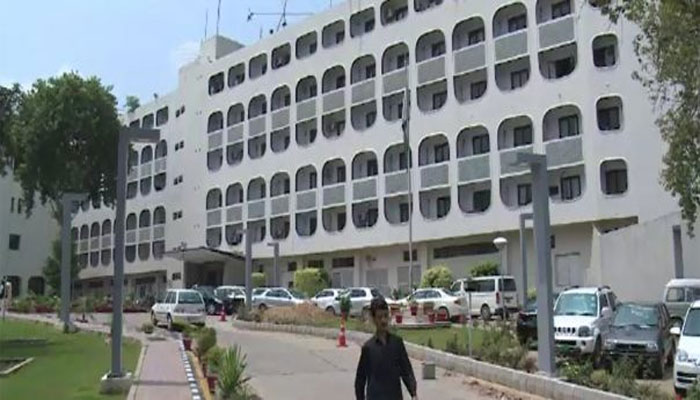Pakistan responds to reports of opening of ‘Free Balochistan Office’ in New Delhi by India

ISLAMABAD: (DNA) – Foreign Office Thursday responding to reports of opening of ‘Free Balochistan Office’ in New Delhi, saying Indian interference in Pakistan was an established fact and indicated its hegemonic designs.
“India needs to act as a responsible member of the international community and desist from such actions,” Foreign Office Spokesman Dr Muhammad Faisal said at a weekly press briefing here at the Foreign Office.
He said the case of Indian spy Kulbhushan Jadhav was an evidence of “Indian terrorism and espionage”, and said Pakistan had shared with the UN and international community.
“Indian actions are against inter-state norms and threaten regional peace and tranquility,” he said, adding that Pakistan was fully equipped to defend itself against such acts.
The spokesman said Pakistan’s case in International Court of Justice (ICJ) against Indian spy Kulbhushan Jadhav was “very strong”, because he was apprehended within Pakistani territory.
He said the UN secretary general’s endorsement of the report by the Office of Human Rights Commission on Kashmir was the biggest success of Pakistan in 70 years in the domain of Kashmir.
“The international support that we gained on Kashmir is the biggest success of our foreign policy in seven decades,” he said and added that the OHCHR report “another blow to India’s farcical constructs about IOK”.
The Spokesman mentioned that the OHCHR report quoted official Indian sources including Indian parliament, supreme court and external affairs ministry for not giving permission to the inquiry commission for a visit.
On contrary, he said, Pakistan welcomed the visit by the UN commission of Inquiry, as recommended in the report, to both Azad Jammu and Kashmir and Indian occupied Kashmir.
He said the OHCHR report had greatly upset the Indian efforts to project that all was well in IoK and was the first report of its kind that acknowledged and documented India’s widest human rights violations.
Related News

Eye examination of Imran Khan underway at Adiala jail
ISLAMABAD, FEB 15: The eye examination of Pakistan Tehreek-e-Insaf (PTI) founder Imran Khan is underRead More

Tremors felt in Balochistan’s Kharan district; no damage reported
QUETTA, FEB 15: Tremors were felt in the Kharan area of Balochistan on Friday, promptingRead More


Comments are Closed